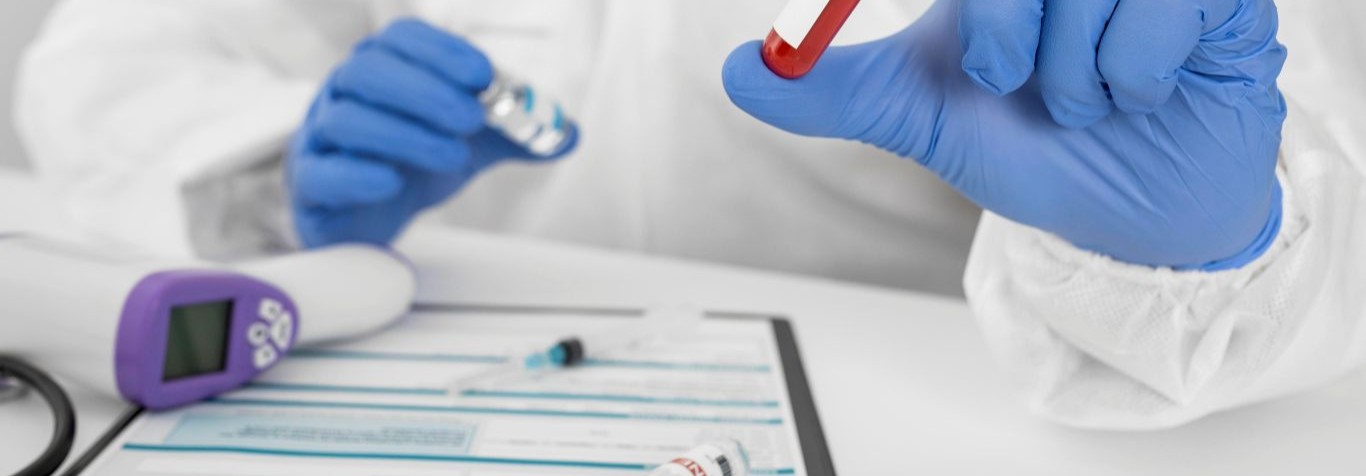Understanding Monkeypox & How Outbreak Spreads
Contents
Although it’s been around for over 50 years, the monkeypox virus has recently spread to over 70 countries, causing the World Health Organisation (WHO) to label it a public health emergency of international concern. As news about increasing cases reaches you every day, it’s a good idea to learn as much as possible about the virus. Read on to learn what does monkeypox look like and what are the symptoms of monkeypox so you can quickly identify the virus.
What Is Monkeypox?
The monkeypox virus causes the disease monkeypox. The virus comes from the same family of viruses that caused smallpox. The disease dates back to 1958, when colonies of research monkeys got infected. While the initial cause is undetermined, rodents and non-human primates may carry the virus and infect people.
What Are The Symptoms Of Monkeypox?
Monkeypox symptoms are often mild. In rare cases, people develop serious symptoms that require hospitalisation. If you’re worried you came in contact with the virus, you should watch for: - Fever - Headaches - Muscle aches - Low energy - Back pain - Swollen lymph nodes
What Does Monkeypox Look Like?
The initial symptoms listed above are often followed by the development of a rash on the face – around the eyes and mouth, throat, palms, soles of the feet, and the genital area. Individuals may have a single lesion or several that last for up to three weeks. The lesions are flat at first, but they swell up with liquid before eventually drying up and falling off. A fresh layer of skin forms underneath the lesion.
What Causes Monkeypox?
The monkeypox virus causes monkeypox. Animals like rope squirrels, dormice, tree squirrels and non-human primates are natural carriers of the virus. It can spread from animals to humans through close contact with lesions or contaminated material. Monkeypox spreads from one individual to the other through close contact with body fluids, contaminated materials and respiratory droplets.
What Is Monkeypox Disease Treatment?
Although monkeypox and smallpox are related, the former is quite mild. Most people who contract the virus do not require full-time care in a hospital. Doctors often prescribe pain and fever medication to help treat symptoms. If you have to self-isolate, it’s crucial that you focus on your mental health. Keep up with your hobbies and exercise if you can. During the rash phase, avoid scratching your skin. Wash your hands thoroughly before and after touching any lesions and keep your skin dry. The lesions should remain uncovered unless you are forced to be in the same room as others, in which case you can use a bandage. You can keep the rash clean with sterilised water and antiseptics, while saltwater rinses can soothe lesions in the mouth. Mixing baking soda and Epsom salts with warm bath water can help lesions on the rest of your body.
Monkeypox And Health Insurance
If you have health insurance coverage in India, your policy will likely cover claims arising from monkeypox treatment. Like with COVID-19 treatment, you can only file valid claims for hospitalisation costs, not for voluntary self-isolation or asymptomatic isolation. Health policies help you deal with hospitalisation costs and medical emergencies. To ensure you remain covered at all times, you must always renew your health insurance policy before it expires. So far, monkeypox has not been declared a pandemic. While there are cases in the country, you can keep safe by avoiding direct contact with patients, practising good hand hygiene, and wearing a mask. Since monkeypox is similar to smallpox, scientists are already working on variants of the smallpox vaccine to immunise people against monkeypox. Some vaccines have already received approval, and more are underway.
So far, monkeypox has not been declared a pandemic. While there are cases in the country, you can keep safe by avoiding direct contact with patients, practising good hand hygiene, and wearing a mask. Since monkeypox is similar to smallpox, scientists are already working on variants of the smallpox vaccine to immunise people against monkeypox. Some vaccines have already received approval, and more are underway.
Disclaimer
The content on Understanding Monkeypox & How Outbreak Spreads is for informational purposes only and does not constitute medical advice. It is not intended to diagnose, treat, or prevent any condition. Always consult a qualified healthcare provider for medical concerns. The authors are not licensed medical professionals, and Zuno General Insurance Limited assumes no liability for any actions taken based on the information provided. By using this site, you agree that Understanding Monkeypox & How Outbreak Spreads is not responsible for any consequences arising from reliance on its content.



